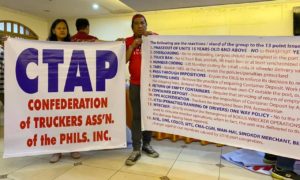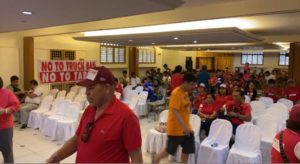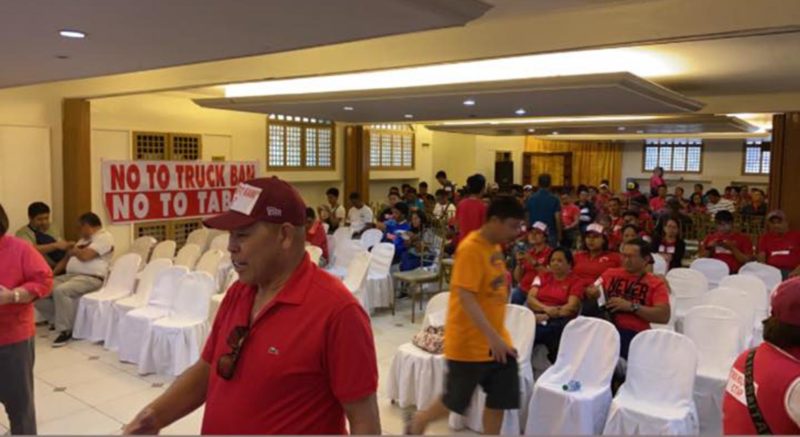
The Confederation of Truckers Association of the Philippines (CTAP) is going ahead with a trucking holiday today (Jan 13) to highlight issues hounding the industry, some of which have remained unsolved for years.
CTAP is urging its members, which together have around 14,000 truck units, not to allow their units to leave garages and refuse to make deliveries. The group said all activities in connection with the trucking holiday will be conducted “peacefully and legally”, and advised members to observe non-violence and not to obstruct public roads and streets.
CTAP directors and some members are currently at the Club Intramuros in Manila to monitor the situation.
READ: CTAP schedules Jan 13 trucking holiday
 The group earlier said the trucking holiday is due to the “crisis confronting the trucking industry” brought on by issues such as the recent implementation of the Navotas City limited truck ban; truck bans of other local government units (LGUs); the alleged requirement of a travel permit by the city government of Manila; pass-through fees imposed by various LGUs; accreditation requirement of the Philippine Ports Authority; heavy traffic in the metropolis; one-way policy along Isla Puting Bato; and alleged abusive towing operations of the Manila Traffic and Parking Bureau.
The group earlier said the trucking holiday is due to the “crisis confronting the trucking industry” brought on by issues such as the recent implementation of the Navotas City limited truck ban; truck bans of other local government units (LGUs); the alleged requirement of a travel permit by the city government of Manila; pass-through fees imposed by various LGUs; accreditation requirement of the Philippine Ports Authority; heavy traffic in the metropolis; one-way policy along Isla Puting Bato; and alleged abusive towing operations of the Manila Traffic and Parking Bureau.
Other issues cited include the looming phase-out of trucks that are more than 15 years old; implementation of the Anti-Overloading Law; return of empty containers; delay in return of container deposit by foreign shipping lines; and the Terminal Appointment Booking System in Manila’s international terminals.
There is no advise yet until when the trucking holiday will end. CTAP said it may continue until concerned government agencies and local government units sit with the group to address their concerns. – Roumina Pablo





